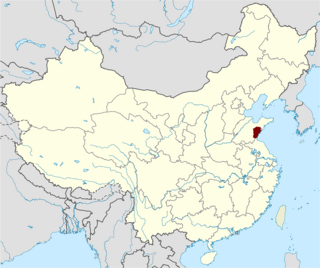
Mizhou or Mi Prefecture was a zhou (prefecture) in imperial China in modern southeastern Shandong, China. It existed (intermittently) from 585 until 1368 upon the foundation of the Ming dynasty.
Yuezhou or Yue Prefecture was a zhou (prefecture) in imperial China in modern Hunan, China, centering on modern Yueyang.

Yuezhou or Yue Prefecture was a zhou (prefecture) in imperial China in modern Zhejiang, China, centering on modern Shaoxing. It existed (intermittently) from 605 until 1131, when it became Shaoxing Prefecture.

Huazhou or Hua Prefecture was a zhou (prefecture) in imperial China seated in modern Hua County, Henan, China. It existed (intermittently) from 596 to 1374. Through history it was also known by other names, including Yan Prefecture (606–607), Dong Commandery (607–618) and Lingchang Commandery (742–758).

Huazhou or Hua Prefecture was a zhou (prefecture) in imperial China seated in modern Hua County, Shaanxi, China. It existed (intermittently) from 554 to 1913. Through history it was also known by other names, including Tai Prefecture, Huayin Commandery (742–758) and Dexing Prefecture (897–900).
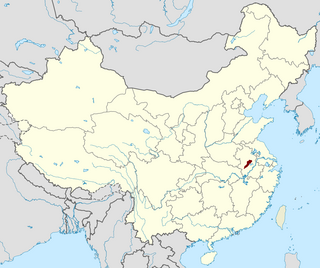
Luzhou or Lu Prefecture was a zhou (prefecture) in imperial China centering on modern Hefei, Anhui, China. It existed (intermittently) from 581 to 1277.

Yingzhou or Ying Prefecture was a zhou (prefecture) in imperial China in modern Hebei, China, seated in modern Hejian. It existed (intermittently) from 487 until 1108.

Jiazhou or Jia Prefecture was a zhou (prefecture) in imperial China seated in modern Leshan, Sichuan, China. It existed (intermittently) from the 6th century to 1196. Between 742 and 758 it was known as Qianwei Commandery (犍為郡).
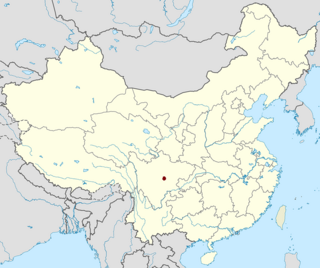
Qiongzhou or Qiong Prefecture was a zhou (prefecture) in imperial China seated in modern Qionglai City in Sichuan, China. It existed (intermittently) from the 6th century to 1913. Between 742 and 758 it was known as Linqiong Commandery.
Baizhou or Bai Prefecture was a zhou (prefecture) in imperial China in modern southern Guangxi, China. It existed intermittently from 623 to 1136, and between 742 and 758 it was known as Nanchang Commandery.
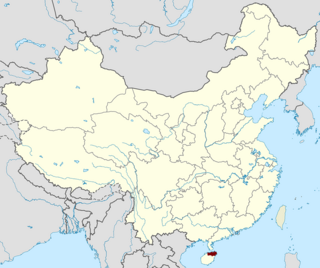
Qiongzhou or Qiong Prefecture was a zhou (prefecture) in imperial China in modern northeastern Hainan, China. It existed from 631 to 1329, but between 742 and 758 it was known as Qiongshan Commandery.

Zhengzhou or Zheng Prefecture was a zhou (prefecture) in imperial China centering on modern Zhengzhou, Henan, China. It existed (intermittently) from 583 until 1913 after the foundation of the Republic.

Duanzhou or Duan Prefecture was a zhou (prefecture) in imperial China in modern Guangdong, China, centering on modern Zhaoqing. Duan Prefecture was a major production center of inkstones.

Wan'an Zhou or Wan'an Prefecture was a zhou (prefecture) in imperial China in modern southeastern Hainan, China. It existed from 662 to 1368, but between 742 and 757 it was known as Wan'an Commandery, and between 757 and 758 as Wanquan Commandery. The Song dynasty made it a military prefecture in 1074.
Yulinzhou or Yulin Prefecture was a zhou (prefecture) in imperial China in modern southern Guangxi, China. It existed from 666 to 1912, and between 742 and 758 it was known as Yulin Commandery.
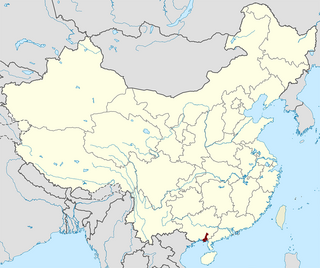
Lianzhou or Lian Prefecture was a zhou (prefecture) in imperial China in modern Guangxi, China. It existed (intermittently) from 634 to 1381. Between 742 and 758 it was known as Hepu Commandery.

Lianzhou or Lian Prefecture was a zhou (prefecture) in imperial China in modern northwestern Guangdong, China. It existed (intermittently) from 590 to 1912. Between mid-600s and 621 it was known as Xiping Commandery, and between 742 and 758 as Lianshan Commandery.

Qīnzhōu or Qīn Prefecture was a zhou (prefecture) in imperial China in modern Guangxi, China. It existed (intermittently) from 598 to 1912. Between 607–621 and 742–758 it was known as Ningyue Commandery.
Guǎngzhōu or Guǎng Prefecture was a zhou (prefecture) in imperial China in the Pearl River Delta. Its administrative area contained parts of modern Guangdong, as well as both modern Hong Kong and Macau. Between 601 and 607 it was known as Pan Prefecture, between 742 and 758 as Nanhai Commandery, and in the 10th century as Xingwang Prefecture.
Henanfu or Henan Prefecture, also known as Luoyang, was a fu in imperial China in modern Henan, China, centering on modern Luoyang. It existed (intermittently) from 713 to 1913. During the Later Tang dynasty (923–937) it was the national capital. For most of the Tang dynasty it was known as the "Eastern Capital" (東都), and during the Northern Song dynasty (960–1127) it was known as the "Western Capital" (西京). From 1127 to 1234 the Jurchen conquerors named it Jinchang Prefecture (金昌府), also known as "Central Capital" (中京). For these reasons Henan Prefecture was also colloquially called Luojing.















